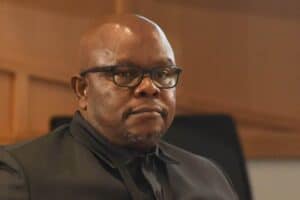The utility's chief operating officer has previously been investigated, and previously cleared, too.

In a statement on Wednesday, power utility Eskom said an investigation into allegations of corruption, dishonesty, conflict of interest and abuse of power against its chief operating officer (COO) Jan Oberholzer cleared him of wrongdoing.
The external senior counsel who investigated the matter had submitted his report to the board on 4 April.
#Eskom #MediaStatement on the Chief Operating Officer @SABCNews @eNCA @IOL @ewnupdates @mailandguardian @TimesLIVE @SowetanLIVE @News24 pic.twitter.com/OPcTHjEp5m
— Eskom Hld SOC Ltd (@Eskom_SA) April 15, 2020
The investigator looked into whether Oberholzer had an undisclosed conflict of interest related to Stefanutti Stocks or any other company, as well as the role he had played in a contract given to Black and Veatch in 2007.
The senior counsel was also tasked with investigating whether an employee, an alleged whistle-blower, was moved from one department to another in an improper manner. He looked at “the circumstances that led to the complainant being transferred from his position as General Manager: Mega Projects (Capital Division) to the Human Resources Department and whether such transfer was done in accordance with the applicable Human Resources policies of Eskom”.
The investigator found that Oberholzer had disclosed his Stefanutti Stocks shareholding in the correct manner and “it was not a matter in which he should face a disciplinary hearing”, and he was also cleared on his involvement in the Black and Veatch case.
“In considering the Black and Veatch contract, the senior counsel could find no fault or other improper conduct on the part of Mr Oberholzer insofar as this transaction is concerned.”
The senior counsel conducted the investigation by interviewing witnesses and reviewing the information and documentary evidence provided by the witnesses, including the complainant and other Eskom officials.
Speaking earlier this month, the power utility’s chief executive, Andre de Ruyter, said they had received a preliminary report of the investigation, which was launched in March after they received of letters from the civil society organisation Corruption Watch and the South African Federation of Trade Unions, in which both organisations articulated allegations of corruption and victimisation against Oberholzer.
“Both organisations cite the same source, an Eskom employee who has since deposed to an affidavit to the commission of inquiry into state capture, as having raised the allegations. In the correspondence, the organisations implore the Eskom board to intervene and act to protect the whistle-blower.”
The investigator found that there had been “tension” between Oberholzer and the alleged whistle-blower, but no evidence could be found that there had been actual victimisation on Oberholzer’s part of this employee.
The Eskom board decided not to pursue any action against Oberholzer and would be waiting for the outcome of a R42 million claim against Aveng that is due to appear before the high court next month before deciding whether “any employee” would need to face disciplinary action.
Eskom had previously dealt with matters concerning their COO, and another investigation led by outside senior counsel also found no substance to earlier allegations.
The board was satisfied that the other allegations against Oberholzer that were put before the senior counsel had been “fully and adequately ventilated and investigated, and that there was no cause for any action against him”.
“The board is committed to the highest principles of ethics and good corporate governance, and will investigate any and all allegations made against any Eskom employee, regardless of their position or seniority.”
De Ruyter said this month that it would take time to fix the damage done to Eskom due to 10 years of corruption.
He said that since President Cyril Ramaphosa’s national lockdown announcement, the country had not experienced any load shedding.
“We think we will be able to emerge from this lockdown period with a fleet in which we have better reliability and predictability.
“Having said that, we still have a lot of work to do to catch up with 10 years of neglect that needs to be repaired,” said De Ruyter.
The power utility had announced they would carry out short-term maintenance for their generation infrastructure due to the lockdown.
“With the Covid-19 lockdown in full effect, Eskom has experienced a significant reduction in demand for electricity,” they said earlier this month.
“Electricity usage has dropped between 7,500 MW and 9,000 MW since the lockdown came into effect last week. This has allowed Eskom to operate without the need to implement load shedding,” Eskom explained in a statement. They intended to double their maintenance efforts during the window of reduced demand.
READ NEXT: Eskom uses Covid-19 drop in electricity demand as chance to fix decrepit network.
For more news your way, download The Citizen’s app for iOS and Android.






